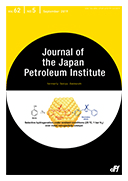
JOURNAL OF THE JAPAN PETROLEUM INSTITUTE
Scope & Guideline
Elevating Standards in Petroleum Science and Technology
Introduction
Aims and Scopes
- Catalytic Processes:
The journal publishes research on various catalytic processes, including hydrocracking, hydrogenation, and oxidation reactions, with a focus on improving efficiency and selectivity in the conversion of hydrocarbons. - Sustainable Energy Solutions:
Research aimed at developing environmentally friendly processes, such as CO2 utilization and biofuel production, is a key focus area, reflecting the journal's commitment to sustainable energy technologies. - Material Science in Petroleum Engineering:
Investigations into the synthesis and application of novel materials, including catalysts and support frameworks, are prominent, highlighting the importance of material properties in the performance of petroleum processes. - Thermodynamics and Kinetics of Reactions:
The journal covers studies on the thermodynamic and kinetic aspects of various chemical reactions, providing insights into reaction mechanisms and optimizing process conditions. - Analytical Techniques in Petrochemistry:
The use of advanced analytical techniques to characterize petroleum products, catalysts, and reaction intermediates is emphasized, enhancing the understanding of complex chemical systems.
Trending and Emerging
- CO2 Utilization and Carbon Capture Technologies:
There is a rising interest in research that explores innovative methods for utilizing CO2, including catalytic conversion processes that transform CO2 into valuable chemicals and fuels, highlighting the importance of addressing climate change. - Nanotechnology in Catalysis:
The application of nanomaterials in catalyst design and performance optimization is gaining traction, indicating a trend toward enhancing catalytic efficiency and selectivity through advanced material properties. - Biomass and Renewable Energy Sources:
Research focused on converting biomass into liquid fuels and chemicals is increasingly prominent, reflecting a shift towards renewable energy sources within the petroleum sector. - Advanced Analytical and Computational Methods:
There is a growing emphasis on employing sophisticated analytical techniques and computational modeling to understand reaction mechanisms and optimize catalytic processes, showcasing the integration of technology in petroleum research. - Sustainable and Green Chemistry Practices:
The emergence of research promoting green chemistry principles, such as the development of environmentally benign catalysts and processes, aligns with global sustainability goals and is becoming a key focus area.
Declining or Waning
- Conventional Oil Refining Techniques:
Research papers focusing on traditional oil refining methods are becoming less common, possibly due to the industry's shift toward more innovative and sustainable technologies. - Basic Hydrocarbon Chemistry:
Studies centered on fundamental hydrocarbon reactions without significant applications in catalysis or energy efficiency are decreasing, suggesting a move toward more applied research. - Asphaltene and Heavy Oil Studies:
The frequency of articles dedicated to the challenges associated with asphaltene management and heavy oil processing has waned, potentially reflecting a broader industry focus on lighter hydrocarbons and cleaner technologies.
Similar Journals
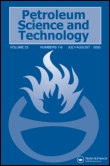
PETROLEUM SCIENCE AND TECHNOLOGY
Pioneering research in the dynamic field of petroleum science.PETROLEUM SCIENCE AND TECHNOLOGY, published by Taylor & Francis Inc, is a pivotal journal dedicated to advancing the multidisciplinary field of petroleum engineering and related technologies. With an ISSN of 1091-6466 and an E-ISSN of 1532-2459, this journal serves as a vital platform for disseminating research in areas ranging from geotechnical engineering to energy technology. As of 2023, it is recognized in the Q3 quartile across several categories, including Chemical Engineering and Fuel Technology, signifying its respectable standing within the academic community. With a convergence timeline from 1997 to 2024, the journal continuously addresses crucial issues in the energy sector, making it essential reading for researchers, industry professionals, and policy-makers alike. Although not an open access journal, its rigorous peer-reviewed articles contribute significantly to the advancement of knowledge and innovation within these fields, reflecting the journal's commitment to promoting scientific understanding and practical applications.

SOCAR Proceedings
Cultivating Excellence in Applied Mathematics and Geosciences.SOCAR Proceedings is a distinguished academic journal published by the State Oil Company of the Azerbaijan Republic, specifically from the Oil Gas Scientific Research Project Institute. This journal addresses vital aspects of various interdisciplinary fields including Applied Mathematics, Chemical Engineering, Energy Engineering, and Geosciences, making it an essential resource for researchers and professionals alike. Since its inception in 2010, SOCAR Proceedings has cultivated significant contributions to the knowledge base, particularly as it boasts a respectable Q3 category ranking across several relevant fields for 2023. As a journal known for its commitment to disseminating innovative research, it offers invaluable insights into the energy sector that are particularly pertinent to the regional and global challenges posed by resource management and environmental sustainability. With an evolving focus up to 2024, SOCAR Proceedings continues to foster scholarly dialogue and research advancements, making it a vital forum for students and academics looking to deepen their understanding of energy and engineering sciences.

RUSSIAN CHEMICAL BULLETIN
Bridging Theory and Application in Chemistry.RUSSIAN CHEMICAL BULLETIN, published by SPRINGER, serves as a pivotal resource in the field of general chemistry, covering a wide array of topics that impact both theoretical and applied chemistry. With an ISSN of 1066-5285 and a presence since 1993, this journal provides a platform for disseminating significant research findings, practical applications, and novel methodologies within the broader chemistry community. While it currently holds a Q3 ranking in the Chemistry (miscellaneous) category and occupies the 230th position out of 408 in the Scopus rankings, its reputation continues to grow, fostering collaboration and innovation among researchers and professionals alike. Although the journal does not offer an open-access model, it is committed to making findings accessible within the academic community, ensuring that valuable insights can inform future research. With an anticipated convergence of studies extending to 2024, the RUSSIAN CHEMICAL BULLETIN remains an essential reference for those dedicated to advancing chemical science.

PETROLEUM CHEMISTRY
Uncovering the Complexities of Petroleum for Energy Solutions.Petroleum Chemistry is a premier journal dedicated to the advancement of knowledge in the field of petroleum science and technology. Published by MAIK Nauka/Interperiodica/Springer, it serves as a vital resource for researchers, professionals, and students interested in various aspects of petroleum chemistry, including exploration, extraction, and processing. With an ISSN of 0965-5441 and an E-ISSN of 1555-6239, the journal has a robust publication history, converging from 1991 to 2024. It holds a respectable position in the academic community, as evidenced by its category quartiles in 2023, being ranked in the Q3 tier across multiple disciplines such as Chemical Engineering, Chemistry, and Energy Technology. Although the journal is not open access, it offers comprehensive insights that fuel ongoing research and innovation within the sector, making it essential reading for those invested in the future of energy and fuel technology.
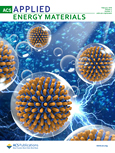
ACS Applied Energy Materials
Connecting Ideas to Drive Energy InnovationACS Applied Energy Materials, published by the American Chemical Society, is a premier journal dedicated to the cutting-edge fields of energy materials, chemical engineering, and electrochemistry. With an impressive impact factor and consistently ranked in the Q1 category across multiple disciplines—including Chemical Engineering, Electrical and Electronic Engineering, and Materials Chemistry—this journal serves as a pivotal platform for researchers and professionals focused on innovative solutions for energy systems and materials science. Since its inception in 2018, ACS Applied Energy Materials has been committed to disseminating high-quality research that addresses pressing energy challenges, promoting sustainability and efficiency in various applications. Its competitive Scopus rankings reflect the journal's influence and relevance within the academic community, making it an essential resource for anyone looking to stay at the forefront of energy materials research.

Reactions
Empowering Researchers with Open Access InsightsReactions is a dynamic open-access journal published by MDPI, dedicated to the advancement of research in the fields of Chemical Engineering and Chemistry. Launched in 2020, the journal aims to provide a platform for scientists and researchers to share their findings and innovations, facilitating the synthesis and dissemination of knowledge within the global academic community. With an impact factor that reflects its growing influence, Reactions ranks 47th in the Chemical Engineering category and 72nd in Chemistry on Scopus, placing it within the vibrant landscape of contemporary chemical research. Housed in the picturesque city of Basel, Switzerland, the journal is committed to open access, ensuring that its high-quality content is readily available to all. This commitment not only enhances visibility but also fosters collaboration among researchers, professionals, and students striving to push the boundaries of chemical sciences. As we look towards 2024 and beyond, Reactions continues to encourage submissions that explore groundbreaking methodologies, innovative applications, and transformative theoretical frameworks in chemistry and chemical engineering.

eScience
Championing Open Access for Global Scientific ProgresseScience, published by KEAI PUBLISHING LTD, is an innovative open-access journal that has rapidly established itself as a leading platform in the fields of Electrochemistry, Materials Chemistry, and Renewable Energy, Sustainability, and the Environment. Since its inception in 2021, eScience has garnered recognition for its high-quality research, achieving an impressive Q1 ranking in each of its primary categories as of 2023. With a remarkable Scopus ranking—placing it among the top percentile of journals in these disciplines—eScience serves as an essential resource for researchers and practitioners aiming to advance knowledge and application in sustainable practices and materials innovation. As an open-access journal, eScience supports widespread dissemination of vital research, ensuring accessibility for all, which is critical in addressing contemporary global challenges. The journal's commitment to fostering interdisciplinary dialogue and collaboration positions it as a cornerstone for those dedicated to pushing the boundaries of scientific discovery.
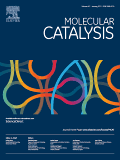
Molecular Catalysis
Pioneering Research in Catalytic ProcessesMolecular Catalysis, published by Elsevier in Netherlands, is a premier academic journal that explores the cutting-edge domain of catalytic science. With an impressive impact factor and classified in the top quartiles (Q2) in various fields such as Catalysis, Physical and Theoretical Chemistry, and Process Chemistry and Technology, this journal stands as a significant resource for researchers and professionals committed to advancing the understanding of catalysis processes. Since its inception in 2017, it has been pivotal in publishing high-quality, peer-reviewed research that addresses crucial challenges and innovations in molecular catalysis. The journal is fully Open Access, allowing unrestricted access to its articles, thus fostering a wider dissemination of knowledge. Recognized for its rigorous editorial standards, it features works that push the boundaries of current scientific understanding, making it an essential platform for students and academics alike to share and grow in their expertise.
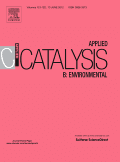
Applied Catalysis B-Environment and Energy
Driving innovation at the intersection of catalysis and environmental science.Applied Catalysis B-Environment and Energy, published by Elsevier, is a leading journal in the fields of catalysis, environmental science, and process chemistry, with an impressive impact factor that reflects its significance in advancing research and innovation. Established in 1992, this esteemed journal has earned a prestigious status as evidenced by its 2023 category quartiles—ranking in the Q1 category for Catalysis, Environmental Science, and Process Chemistry and Technology. With consistently high rankings in the Scopus database, it holds a remarkable position as #1 in General Environmental Science and #2 in both Process Chemistry and Catalysis, showcasing its profound impact on the respective fields. The journal’s scope encompasses both theoretical and practical research, targeting the pivotal developments in catalysis that promote sustainable practices and energy efficiency. Researchers, professionals, and students alike will find invaluable insights and cutting-edge studies published within its pages, making it an essential resource for those invested in pioneering advancements for a greener, more energy-efficient future.
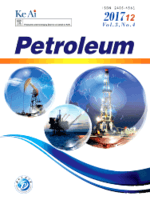
Petroleum
Exploring the depths of energy innovation and geological insights.Petroleum, an esteemed open-access journal published by KEAI PUBLISHING LTD, serves as a premier platform for disseminating high-quality research in the fields of energy engineering, fuel technology, geology, and related earth sciences. Established in 2015, the journal exemplifies innovation and scholarly rigor with a commendable ranking in the second quartile across multiple categories, including Energy Engineering and Geopolitics. With a focus on advancing knowledge and practices in the petroleum sector, it encourages submissions that encompass a broad spectrum of topics from exploration and extraction techniques to environmental impacts and sustainability measures. Based in Beijing, China, this journal's impact is further enhanced by its significant presence in the Scopus database, achieving impressive percentiles, such as the 95th for Geology and 93rd for Geochemistry and Petrology. The open-access model fosters unrestricted global collaboration and accessibility, making the latest research available to a diverse audience of researchers, professionals, and students eager to innovate and lead in the burgeoning energy landscape.